Sustain Charlotte hosts youth sustainable transportation fair
Last Friday, Sustain Charlotte transformed west Charlotte’s Arbor Glen Outreach Center into an exciting forum of hands-on learning about sustainable transportation. About 100 youth ages 7 to 14 rotated among six stations hosted by Charlotte area nonprofits and government departments. At each station, volunteers led a different learning activity to educate the youth about safe and sustainable transportation.
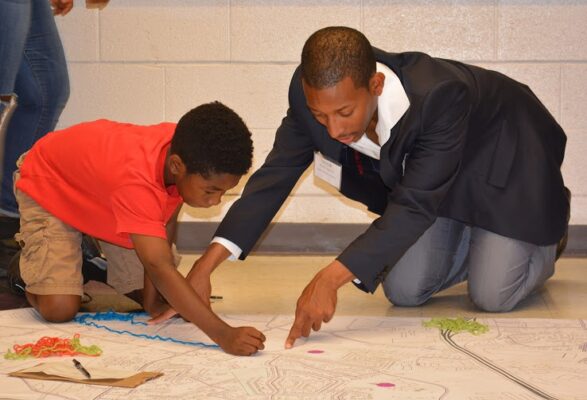
Sustain Charlotte board member Norman Spencer assisted with a map exercise.
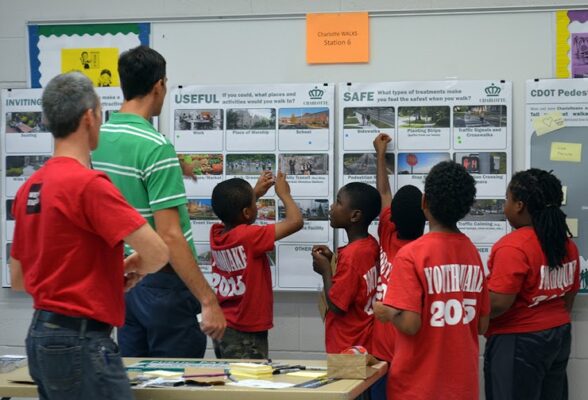
Charlotte Department of Transportation‘s pedestrian planner Scott Curry introduced the youth to the city’s new pedestrian plan called Charlotte WALKS. He gave each child green and blue dots to place on large boards to indicate the amenities they most value when they walk. The input collected from this activity will be tallied and incorporated into final development of the pedestrian plan.
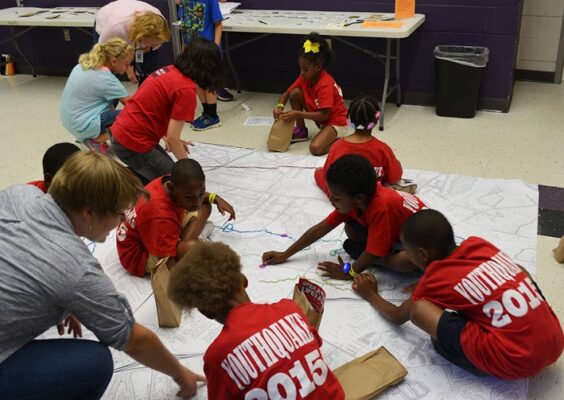
Katie Lloyd from Alta Planning + Design led an activity called Unraveling Neighborhood Routes in which youth measured distances from homes to schools and other locations using a very large floor map and string. They learned how land use and street design affects travel time and accessibility.
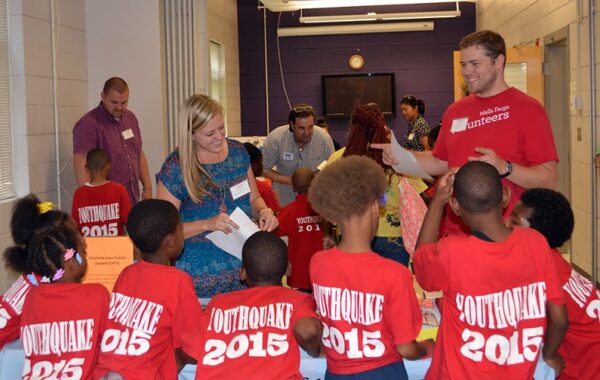
Transit Trivia was in full swing as Ashley Elliott from Charlotte Area Transit System (CATS) quizzed the youth on safety around buses, light rail, and streetcar. They also learned how to read printed transit timetables and how to seek more information about routes.
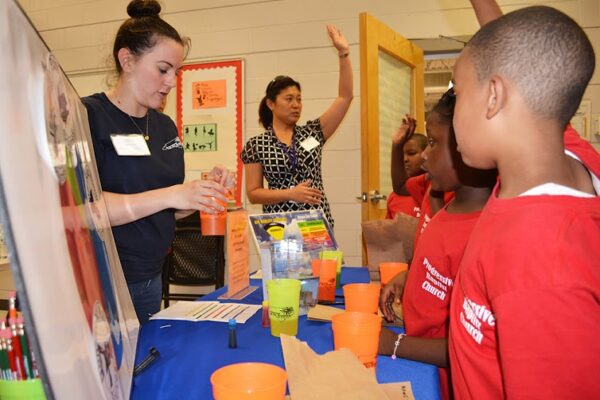
At the Charlotte Area Air Awareness and Mecklenburg County Air Quality station, Tara Onufrak gave each participant a cup of clean water. They added drops of dye to the water to simulate pollution generated by different types of transportation to and from school: no drops for walking or biking, one drop for riding the bus, two drops for carpooling, and three drops for riding alone with a parent. The youth then poured their cups together into a fish bowl to simulate how the actions of each person combine to make air quality either better or worse.
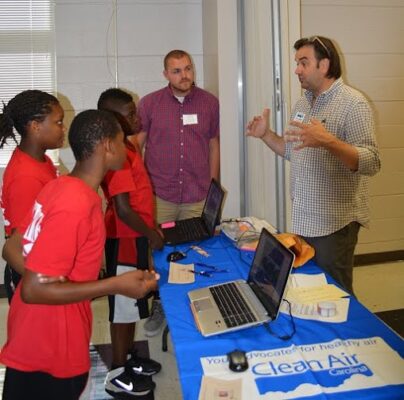
Clean Air Carolina’s Terry Lansdell led an activity called Smog City 2, a computer simulation that allowed the youth to experiment with weather, vehicle activity level, and population size to learn how these factors collectively affect air quality. Each group of kids learned how ground-level ozone forms and why it’s harmful to human health.
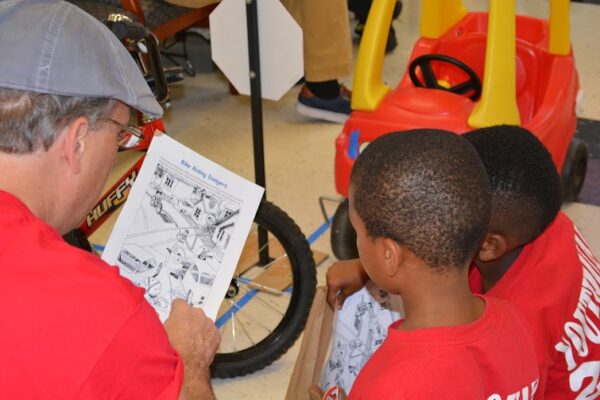
In the lobby, Harry Johnson from Trips for Kids Charlotte and Dick Winters from Mecklenburg County Health Department set up a simulated intersection complete with child-sized cars and bikes. They created several safety scenarios and asked the youth how to stay safe in each situation. They then worked with groups of two or three youth to identify potential safety hazards on a worksheet.
Each participant earned a sticker for completing each activity and put these onto a “Transportation Passport” to be eligible for a grand prize drawing featuring t-shirts (donated by Clean Air Carolina), bike helmets (donated by Active Routes to School and Trips for Kids), and a reusable lunch bag (donated by NC Air Awareness).
Sustain Charlotte’s sustainable transportation work with the West Boulevard community is supported by Wells Fargo, UTC Aerospace Systems, New Belgium Brewing, American Public Transportation Association, and operating support grants from the Z. Smith Reynolds Foundation and Park Foundation. Mecklenburg County Park & Recreation is partnering with us by providing meeting facilities, staff expertise and planning assistance, and promotion of workshops. Volunteers from Sustain Charlotte and Wells Fargo donated their time to plan and run the fair.
If you or your organization are interested in learning more about how to support our neighborhood work in low-income communities throughout Charlotte, please contact our Education and Outreach Program Director, Meg Fencil, at [email protected].
Thanks for reading!
As a nonprofit, community support is essential for us to keep doing what we do — including providing free articles like this. If you found this article helpful, please consider supporting Sustain Charlotte.
Want to stay in the loop? Subscribe to our weekly newsletter and follow us on Instagram, Facebook, and Twitter.
